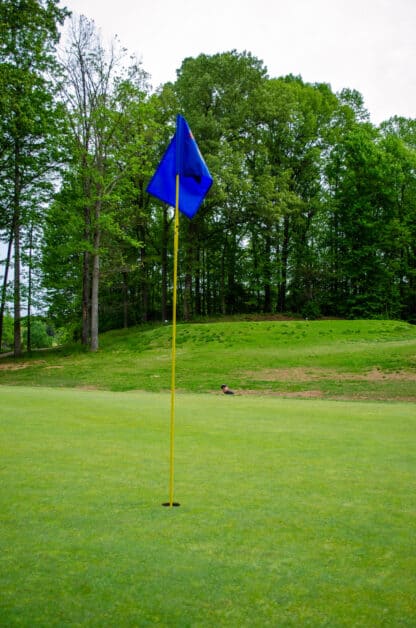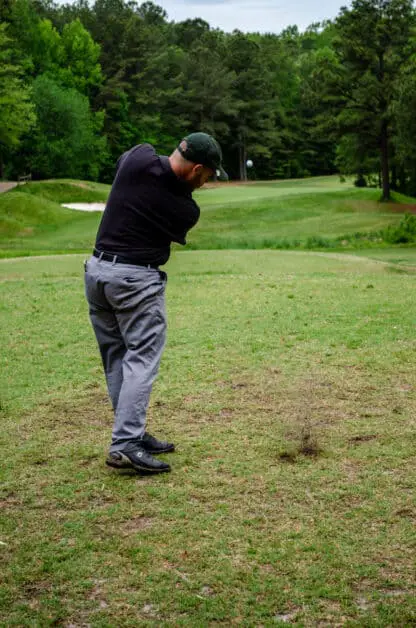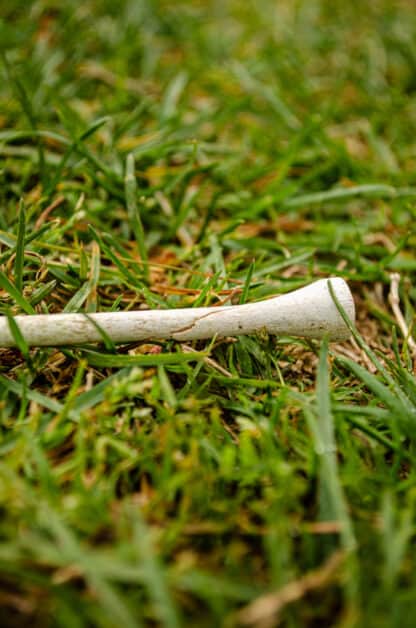The answer to this question is not as straightforward as it may sound, and this is because golf as a game has too many aspects to give this question a straight answer. The opinions on this vary greatly depending on who you ask.
How long does it take to get good at golf? Getting good at golf is not a primary question of how long; it’s more about doing the right things properly and consistently to produce the skills needed to shoot good consistent scores. Doing the wrong thing for twenty years against doing the right thing for one year makes a massive difference.
Not only that, but what does being ‘good at golf’ actually mean? What handicap level is considered to be good at golf? In this discussion, we will look at both aspects and give you a proper idea of how long it could take to become good at golf.
What Does Being ‘Good At Golf’ Mean
Achieving skill in any game takes time, but if you know what skill level you are aiming at, you can play golf working toward achieving that. As far as golf is concerned, what constitutes ‘good’ has been debated for some time.
Many coaches advocate that if you consistently score less than 100 shots per round, that is considered good; however, many others would disagree as shooting in the ’90s on average still makes you a ‘bogey’ golfer, i.e., someone that is averaging one-over-par on every hole or worse.
This does not constitute good. While many golfers will never be single-figure handicap players or scratch golfer, breaking par consistently, there is a level of golf considered good, and that level is scoring between 75 and 85 per round on average.
This would put you at a handicap of around 12 or better, which would be considered a proficient game skill level for a golfer. So if you were in a conversation and the topic of golf handicap came up, you would be considered good as a 12 or better.
So How Long Does It Take To Get Good At Golf?
Knowing the target skill level, the question now is how long it would take you to get there? For this discussion, let’s assume you are a rank beginner or have played a few rounds and shot in the 100+ range.
The game of golf is unlike most other sports. Take running or cycling for example. If you run every day, you will get better at running, and the same would be true for cycling and other sports, but in golf, you can practice every day and get worse!
This is because golf is not about the amount of time you practice but whether you are training to do the right things to execute the golf swing or golf strokes properly.
This is where the game is played. Having a good foundation and understanding of the basic swing and stroke mechanics and then practicing those would accelerate your skill level far quicker than hitting 200 shots a day using poor technique and lacking purpose.
Practice The Correct Things, And You Will Get Good At Golf
To be a good golfer, you need to execute the swing or stroke consistently and accurately. This means that when swinging, you need to consistently set up your swing with all the elements in place and then execute that to achieve a good result – the ball flying high, far, and where you aimed it.
For this, you need the right posture, the correct grip, grip pressure, stance height, distance from the ball, ball position, the proper takeaway, and downswing sequence to get the clubface back to the ball with speed and power.
Before investing in lessons with a golf instructor, whether in person or online, take some time to grasp the golf swing concept and what you need to do in your body mechanics to achieve it. Look for simple explanations of all the elements, as golf instruction is notoriously complicated.
Chat to other golfers about coaches or lessons that simplify the game, and then invest in those. DON’T TAKE LESSONS OR ADVICE FROM PEOPLE THAT CAN’T PLAY as this is the case of the blind leading the blind.
It may take a little time an shopping around around to find a coach that works for you and achieve results through lessons, but the time taken will be worth it. Many coaches offer trial lesson so you can get a sense of their coaching and see if you get results before committing to pay.
Work On A Proper Pre-shot Process For Success
Many high handicap players do not have a proper pre-shot routine to get them in the right position and alignment to execute strokes and swings with consistent quality. This is one of the major differences between low handicap, scratch, and professional golfers and high handicappers.
Having a proper pre-shot routine will get you aligned and focused on the shot at hand and the confidence to execute your swing or stroke to have the ball go where you aim it.
This is why the more skilled players use this.
Build Your Confidence By Hitting Shorter Irons To Start With
Head to the driving range and spend some time hitting the golf ball with different golf clubs.
Trying to hit your driver first off is not the right way to go, as this can be very frustrating to start with. Focus on the shorter irons from 7-iron to wedge and become confident with those first so that when you move to the longer clubs, you have some swing confidence.
Golf Is About Quality, Not Quantity
It’s not the quantity of practice that will make you good at golf, but the quality of what you do. Your skill levels will advance faster if you consistently train and focus on the right things during your sessions.
So instead of spending two hours at the driving range hitting balls with all your golf clubs, you could spend one hour with your shorter irons focusing on good swings and quality ball-striking, which would be much more productive.
Taking 45 minutes to focus on proper putting technique or alignment or chipping on the putting green is better than mindlessly putting or chipping 100 balls without purpose or focus. Getting good at golf is not about the amount of time but rather the quality of what you do. This is especially true of the short game with is honed here on the practice green.
As such, you can progress faster if you have the discipline to do the right things and have the patience to acknowledge that getting good at golf takes time, and it’s a marathon and not a sprint.
Play Golf on the Golf Course
Playing golf on one or more golf courses gives you opportunities to take what you worked on and learned in golf lessons and apply it to your actual golf game rounds. Sometimes when you are playing alone you can hit more than one golf balls from different shots to improve the shot.
Golf is a mental game and having time to play on the golf course while thinking about things like how to set up on the tee box, where to aim for each shot and how to plan each shot is very valuable. Improving your course management is something the average amateur golfer doesn’t work on enough.
This lake of improvement in this area keeps many from becoming a better golfer, and instead keeps them an average golfer. Because even though golf is a technical sport, it is still very much played in the mental area. To shoot lower scores you need to be smarter.
Golf Club Contact with the Golf Ball
When you do spend time on the driving range, focus on things that provide you with solid contact with each shot. Get golf lessons from a local pro who can help you hit that sweet spot with each golf club.
Dialing in that solid contact will improve each golf shot as you will know how far your ball likely will travel because it will be consistent. From your tee shots to your approach shots, becoming a better ball striker has so many benefits to your journey towards lower scores.
Set Your Golf Targets Realistically To Get Good
If you are working five days a week and can only really practice on weekends, then your ability to allocate time to training is limited, but this doesn’t mean you can get good at golf.
By placing value on your practice time and creating a proper training plan with measurable targets and milestones, and working to achieve those targets with every training session, your golf will improve in leaps and bounds.
Conclusion
By first knowing the right things to work on and then putting in the time to achieve those skills, you should be a confident player over 18 holes of golf in about six to nine months, and from there, you can work on lowering your handicap.
The most important aspect of all of this is to remember that this takes time, and by working on the quality of your strokes, swing, and setup, you will get good at golf in a lot less time than those players that don’t.
- Should Tee Boxes Be Level? - January 23, 2024
- 3 Hybrid Distance - November 15, 2023
- Innovations in Golf Mobility: An In-depth Review of Top Golf Scooters - October 12, 2023



